Essay vs. Short Story
What's the difference.
Essays and short stories are both forms of written expression, but they differ in their purpose and structure. Essays are typically non-fiction pieces that aim to inform or persuade the reader about a specific topic. They often follow a formal structure with an introduction, body paragraphs, and a conclusion. On the other hand, short stories are fictional narratives that focus on character development and plot. They can be written in various genres and styles, allowing for more creativity and imagination. While essays prioritize facts and logical arguments, short stories prioritize storytelling and evoking emotions in the reader.

Further Detail
Introduction.
When it comes to literary forms, essays and short stories are two popular choices that captivate readers with their unique attributes. While both share the goal of conveying a message or exploring a theme, they differ in various aspects, including structure, length, and narrative techniques. In this article, we will delve into the characteristics of essays and short stories, highlighting their similarities and differences.
One of the primary distinctions between essays and short stories lies in their structure. Essays typically follow a more formal and structured format, often consisting of an introduction, body paragraphs, and a conclusion. The introduction sets the stage by presenting the topic and thesis statement, while the body paragraphs provide supporting evidence and analysis. Finally, the conclusion summarizes the main points and offers a closing thought.
On the other hand, short stories have a more flexible structure. They often begin with an exposition, introducing the characters, setting, and conflict. The plot then unfolds through rising action, climax, and resolution. Unlike essays, short stories allow for more creative freedom in terms of narrative structure, with authors employing various techniques such as flashbacks, foreshadowing, or nonlinear storytelling to engage readers.
Another significant difference between essays and short stories is their length. Essays are typically shorter in length, ranging from a few hundred to a few thousand words. The brevity of essays allows writers to present their ideas concisely and directly, making them suitable for conveying arguments or exploring specific topics in a focused manner.
On the contrary, short stories are longer and more expansive in nature. They can range from a few pages to several dozen pages, providing authors with ample space to develop characters, build suspense, and create intricate plotlines. The extended length of short stories allows for a deeper exploration of themes and emotions, often leaving readers with a more immersive and satisfying reading experience.
Narrative Techniques
While both essays and short stories employ narrative techniques to engage readers, they differ in their approach. Essays primarily rely on logical reasoning, evidence, and analysis to convey their message. Writers use persuasive techniques, such as ethos, pathos, and logos, to appeal to the reader's intellect and emotions. The narrative in essays is often more straightforward and focused on presenting a coherent argument or viewpoint.
In contrast, short stories utilize a wide range of narrative techniques to create a captivating and immersive experience. Authors employ descriptive language, dialogue, and vivid imagery to bring characters and settings to life. They can experiment with different points of view, shifting perspectives, and unreliable narrators to add depth and complexity to the story. The narrative in short stories is often more imaginative and allows for a greater exploration of the human experience.
Themes and Messages
Both essays and short stories aim to convey themes and messages to their readers, but they do so in distinct ways. Essays often focus on presenting an argument or discussing a specific topic, aiming to inform, persuade, or provoke thought. The themes in essays are typically more explicit and directly related to the subject matter being discussed.
On the other hand, short stories explore themes and messages through storytelling and the experiences of characters. They often delve into complex human emotions, moral dilemmas, or societal issues, allowing readers to reflect on the deeper meaning behind the narrative. The themes in short stories are often more implicit, requiring readers to analyze the story's events and characters to uncover the underlying messages.
In conclusion, while essays and short stories share the common goal of conveying a message or exploring a theme, they differ significantly in terms of structure, length, narrative techniques, and the way they approach themes. Essays offer a more formal and structured approach, focusing on presenting arguments and analysis concisely. On the other hand, short stories provide a more immersive and imaginative experience, allowing for the exploration of complex characters, plotlines, and themes. Both forms of writing have their unique merits and appeal, catering to different reading preferences and purposes.
Comparisons may contain inaccurate information about people, places, or facts. Please report any issues.
Home — Essay Samples — Literature — Literary Genres — Short Story
Essays on Short Story
Brief description of short story, importance of writing essays on this topic, tips on choosing a good topic, essay topics, concluding thought, the masque of the red death: analyzing the symbolic setting and its impact on the narrative, the leap by louise erdrich: a comprehensive summary and analysis, made-to-order essay as fast as you need it.
Each essay is customized to cater to your unique preferences
+ experts online
The Jilting of Granny Weatherall: a Summary and Analysis of Themes and Characters
Darkness in the short stories of james joyce, description of an abandoned house: a short story, personal development of the main character in raymond's run, let us write you an essay from scratch.
- 450+ experts on 30 subjects ready to help
- Custom essay delivered in as few as 3 hours
Bridging The Gap: Comparing "Letters from My Father" and "The Writer"
The effects of class and morality in 'the boarding house' by james joyce, the connection between art and history for julian barnes, analysis of the short story 'the storm' by kate chopin, get a personalized essay in under 3 hours.
Expert-written essays crafted with your exact needs in mind
Analysis of Anton Chekhov’s Short Story "Agafya"
Sister lilith by honorée fanonne jeffers: dismissal of patriarchal values, critical analysis of the lesson by toni cade bambara, our town by thornton wilder: the message to appreciate life, a brief history of perfume, my most embarrassing moment, "a man called horse" as transgression of the western genre, readers’ interpretation of barn burning by haruki murakami, gaze through the window: paralyses in joyce's "dubliners", feeling of imprisonment, life and death in "dubliners" by james joyce, epiphany in james joyce’s araby, already dead: the need for human interaction in butler’s "titanic victim speaks through waterbed", poe’s use of literary techniques in the tell-tale heart, main themes in kate chopin's 'the storm', the yellow wallpaper by charlotte perkins gilman: a woman’s plight, mrs. fullerton’s odd dominos of ambition, two-faced: characterization in bad haircut, analysis of setting in ‘’eveline’’ by james joyce, theme of alienation and isolation in raymond carver's "cathedral", relevant topics.
- Science Fiction
- Courtly Love
By clicking “Check Writers’ Offers”, you agree to our terms of service and privacy policy . We’ll occasionally send you promo and account related email
No need to pay just yet!
We use cookies to personalyze your web-site experience. By continuing we’ll assume you board with our cookie policy .
- Instructions Followed To The Letter
- Deadlines Met At Every Stage
- Unique And Plagiarism Free

Guilherme Mazui
- What is the Difference Between Essay and Short Story?
The main difference between an essay and a short story lies in their purpose, structure, and content. Here are the key differences:
- Purpose : Essays are generally argumentative, informative, or narrative, aiming to provide an account of a specific subject or topic. Short stories, on the other hand, are pieces of fiction that tell a story with a narrative structure, including exposition, rising action, climax, falling action, and resolution.
- Structure : Essays typically follow a formal structure, including an introduction, body paragraphs, and a conclusion. Short stories, while they may have some elements of structure in common with essays, do not require the same level of organization or formal structure.
- Content : Essays focus on a topic or academic issue and usually provide an analysis or exploration of the subject. Short stories, in contrast, are artistic compositions that unfold a story with a plot and characters. They often include action and can use various literary devices such as irony and satire.
- Language : Essays generally use more formal language and adhere to academic norms, avoiding contractions, phrasal verbs, and personal pronouns. Short stories can use more creative and descriptive language to engage the reader and develop the characters and plot.
- Genre : Essays belong to the non-fiction genre, while short stories can be either fiction or non-fiction. However, a narrative essay, a type of essay, can resemble a short story in that it tells a personal experience from the writer's life.
Comparative Table: Essay vs Short Story
Here is a table comparing the differences between an essay and a short story:
The main difference between essays and short stories is that essays are nonfiction and based on real-life experiences, facts, or arguments, while short stories are fiction and focus on imaginative and entertaining narratives. However, both essays and short stories share some similarities, such as being comparable in length and often including characters, settings, plots, and themes.
- Novel vs Short Story
- Article vs Essay
- Report vs Essay
- Narrative vs Story
- Essay vs Research Paper
- Essay vs Composition
- Narrative vs Descriptive Essay
- Plot vs Story
- History vs Story
- Literature vs Fiction
- Novel vs Fiction
- Argumentative vs Expository Essay
- Story vs Script
- Fiction vs Nonfiction
- Article Writing vs Report Writing
- Showing vs Telling in Writing
- Novel vs Novella
- Journalism vs Creative Writing
- Expository vs Narrative

Essay vs. Short Story
What is the difference between short story and essay.
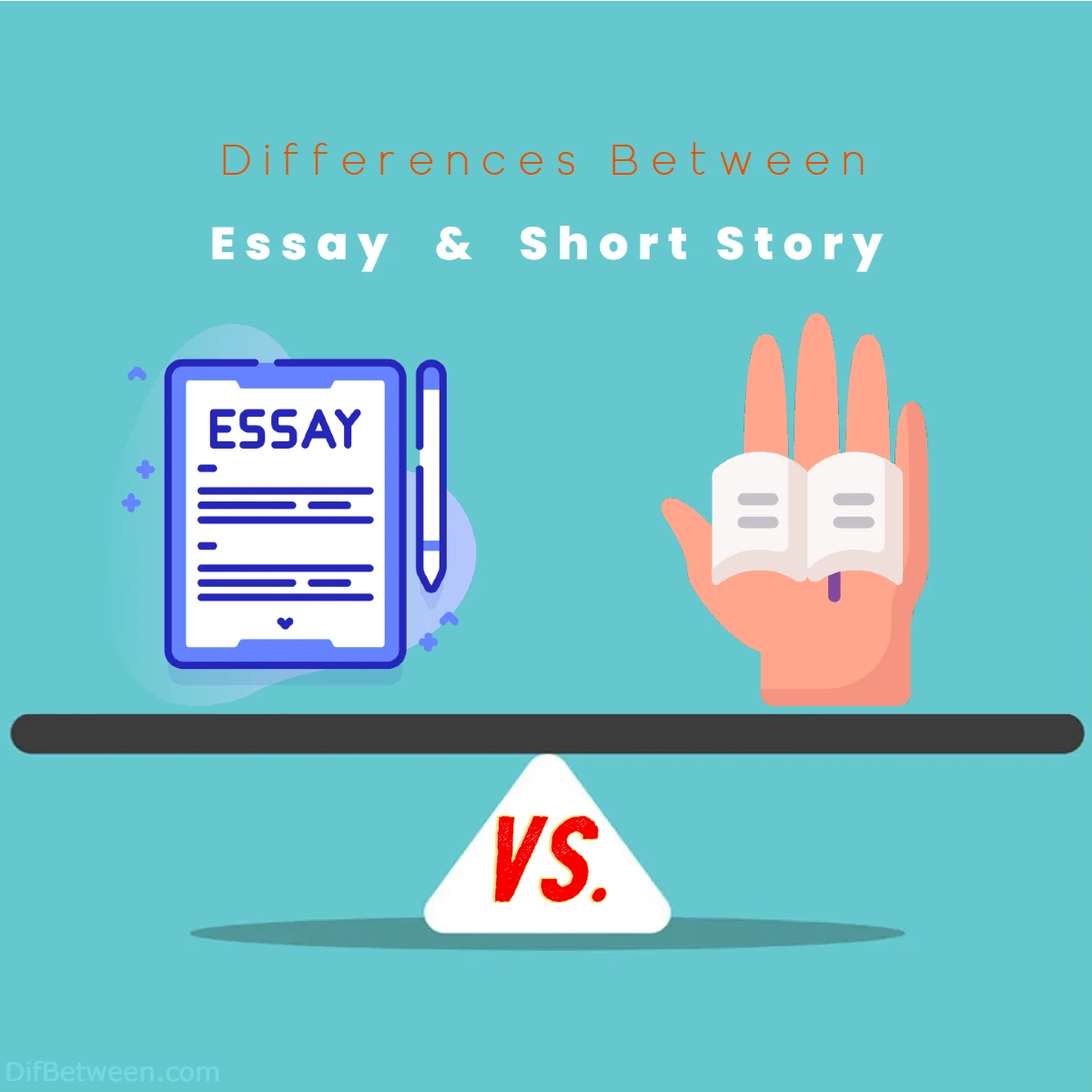
Imagine sitting at your writing desk, contemplating the age-old question: “Should I craft an essay, or should I embark on an enthralling short story?” It’s a delightful conundrum, akin to choosing between a meticulously designed puzzle or the blank canvas of a vibrant painting. As a writer, you’re the artist of your narrative, and the choice between these two distinct forms of expression can be as crucial as selecting the perfect brushstroke or puzzle piece.
Differences Between Essay and Short Story
The main differences between an essay and a short story lie in their genre, purpose, and structure. Essays are non-fiction pieces that aim to inform, persuade, or argue on a specific topic, often featuring a clear structure with an introduction, body paragraphs, and a conclusion. In contrast, short stories are works of fiction designed to entertain and evoke emotions, offering creative freedom in character development and plot. The choice between these forms depends on your intent and creative aspirations, whether it’s conveying facts and arguments through essays or weaving imaginative tales through short stories.
- Genre Classification
Essays fall under the category of non-fiction . They are meant to convey factual information, explore ideas, and express the author’s opinions in a structured, coherent manner. Essays can cover a wide range of topics, from politics to personal experiences, science to society, and everything in between.
Short Story:
On the other hand, short stories are a form of fiction . They are a realm of creativity where the author crafts characters, settings, and plots to engage and entertain readers. Short stories can take on various themes, from romance to horror, mystery to fantasy, and beyond.
- Purpose and Intent
Essays are primarily informative or persuasive in nature. They serve to educate, inform, or convince the reader. Whether it’s a research paper, argumentative essay, or a personal reflection, the purpose of an essay is to share knowledge and insights.
Short stories, in contrast, are meant to entertain and evoke emotions. They transport readers into a different world, make them empathize with characters, and keep them hooked with suspense, surprise, or the sheer joy of storytelling.
- Structure and Organization
Essays are structured, with a clear and logical organization. They typically consist of an introduction, body paragraphs, and a conclusion. The introduction sets the stage, the body presents the argument or information, and the conclusion summarizes the key points.
Here’s a quick overview of the essay structure:
Short stories, however, are more flexible in structure. They can have a traditional linear narrative, but they are not bound by the same rigidity as essays. In fact, authors have creative freedom to experiment with structure to build suspense, surprise, or engage the reader’s imagination.
- Character Development and Plot
In essays, the focus is primarily on ideas and concepts. While you might use examples or anecdotes to support your points, you don’t typically have fully developed characters or a plot. The essay is more about presenting information and arguments in a concise and clear manner.
Short stories are all about characters and plot. You’ll find well-defined characters with distinct personalities, motivations, and often a character arc. Short stories also have a plot that unfolds with a beginning, middle, and end. This plot structure is often central to the story’s impact and entertainment value.
- Point of View
Essays typically use the first person (I, we) or third person (he, she, they) point of view, depending on the nature of the essay. First person is often used in personal or reflective essays, while third person is more common in academic or informative essays.
Short stories employ a variety of narrative perspectives. They can be written in first person or third person , or even in the omniscient point of view where the narrator has access to the thoughts and feelings of multiple characters.
Essays vary in length, but they are typically longer than short stories. They can range from a few hundred words in a short argumentative essay to several thousand words in a lengthy research paper.
As the name suggests, short stories are concise by nature. They usually range from 1,000 to 20,000 words, making them much shorter than most essays.
- Tone and Style
The tone of an essay can vary, but it tends to be more formal and academic. The style is typically clear, objective, and focused on conveying information or making a persuasive argument. The use of jargon or technical language is common in essays, depending on the subject matter.
Short stories are more flexible when it comes to tone and style. They can range from formal to informal, depending on the author’s intent and the theme of the story. Creative language, dialogue, and descriptive elements are often used to engage the reader’s imagination and emotions.
- Author’s Voice
In essays, the author’s voice is often more subdued, and the emphasis is on conveying information or arguments objectively. The author’s personal experiences and emotions, if included, are usually presented in a controlled and measured way.
In short stories, the author’s voice plays a more prominent role. It’s a channel through which the author can express creativity and emotional depth. The author’s voice is integral to character development and the overall atmosphere of the story.
Let’s say you’re writing an essay on climate change. You might present data, scientific evidence, and expert opinions to support your thesis. The focus is on educating or persuading the reader based on factual information.
Now, imagine you’re crafting a short story about a young scientist’s journey to save the world from a climate catastrophe. You’ll create characters with personal struggles and aspirations, and you’ll weave a narrative that emotionally engages the reader, while also conveying the urgency of addressing climate change.
Essays often end with a conclusive statement or a call to action related to the topic. The goal is to leave the reader with a clear understanding of the subject matter and a sense of what can be done next.
Short stories, on the other hand, may end with an open ending or a twist . The reader is left with room for interpretation, or they’re taken by surprise with an unexpected resolution that leaves a lasting impact.
Essays are typically written for a specific audience with a particular interest in the subject matter. This audience could be academics, professionals, or the general public, depending on the topic and purpose of the essay.
Short stories are written for a general audience that enjoys fiction and storytelling. They are crafted to engage a wide range of readers and elicit emotional responses.
- Research and Citation
Essays often require thorough research and citation of sources. Depending on the type of essay, you may need to reference academic papers, books, articles, and other authoritative sources to support your arguments. Proper citation is crucial to maintain credibility.
In short stories, there is no need for extensive research or citations. The author has the creative freedom to invent the world and its rules, allowing the story to unfold in a way that serves the narrative rather than relying on external sources.
- Chronological vs. Non-Chronological
Essays usually follow a chronological or logical sequence. They present information or arguments in a structured order, making it easier for readers to follow the development of ideas.
Short stories can employ both chronological and non-chronological structures. Authors can use flashbacks, non-linear timelines, or other techniques to engage the reader and add depth to the narrative.
- Character Development vs. Author’s Persona
In essays, the author’s personal experiences or identity are less prominent. The focus is on presenting ideas, evidence, and arguments objectively, rather than revealing the author’s character or persona.
In short stories, the author’s persona can subtly or prominently influence the narrative. The author’s emotions, experiences, and worldview can shape the characters, events, and the overall tone of the story.
- Verifiability
Essays require verifiability, where the information presented can be fact-checked and validated. Accuracy and reliability are paramount to maintain the credibility of the essay.
Short stories do not require verifiability in the same way. While they may be grounded in real-world experiences or settings, they are ultimately works of fiction and do not need to meet the same standard of factual accuracy.
- Purpose of Language
In essays, language serves a primarily informative or argumentative purpose. The language is chosen for clarity, precision, and conveying complex ideas effectively.
In short stories, language serves a dual purpose: to convey the narrative and to evoke emotions. Authors often use descriptive, vivid, and figurative language to immerse the reader in the story’s world and connect on an emotional level.
- Length Variability
Essays can vary significantly in length, depending on the subject matter and purpose. A short opinion piece might be a few hundred words, while a comprehensive research paper can span several thousand words or more.
Short stories are typically shorter in length, as the name suggests. However, they still offer a wide range of flexibility, from very short flash fiction to longer, more in-depth narratives.
- Point of Emotional Impact
Essays aim to impact the reader intellectually. They seek to inform, persuade, or educate, but the primary goal is to engage the reader’s mind and critical thinking.
Short stories aim to impact the reader emotionally. They seek to evoke feelings, whether it’s excitement, empathy, fear, or joy. The emotional impact often lingers with the reader long after finishing the story.
- Artistic License
While essays require factual accuracy and a rigorous approach to information, they leave little room for artistic license. The focus is on conveying knowledge and arguments with precision.
Short stories are a canvas for artistic expression. Authors can exercise creative freedom in character creation, plot development, and world-building, allowing for imaginative and artistic elements.
- Enduring Themes
Essays often tackle enduring themes or issues and offer insights into their relevance in contemporary society or academia. They contribute to the ongoing discourse on important topics.
Short stories can also explore enduring themes, but they do so in a more indirect and imaginative way. They use storytelling to reflect on these themes through the experiences of characters.
- Literary Devices
While essays may use literary devices such as metaphors or analogies to enhance clarity or persuasion, they don’t typically rely heavily on such devices. The language in essays is usually more straightforward.
Short stories are fertile ground for literary devices. Authors often use symbolism, metaphor, and other creative language techniques to enrich the narrative and add depth to the story.
- Publication
Essays are commonly published in academic journals, magazines, newspapers, and online platforms. They are often attributed to specific authors and subject to peer review or editorial oversight.
Short stories can be published in literary magazines, anthologies, or as standalone works. They are also prevalent in online fiction communities. Short stories can be attributed to authors, but they may also appear under pseudonyms or remain anonymous.
Essays have a multitude of subgenres, including argumentative, expository, descriptive, narrative, persuasive, and more, each with its own unique purpose and conventions.
Short stories encompass various subgenres, such as science fiction, fantasy, romance, horror, mystery, and literary fiction, each offering a distinct flavor and narrative style.
- Creative Exploration vs. Analysis
Essays involve analytical and critical thinking. They require the author to dissect and understand the subject matter, offering insights, opinions, and analysis.
Short stories involve creative exploration. Authors imagine characters, settings, and events, creating a world that engages the reader’s imagination and emotions.
Essay or Short Story: Which One is Right Choose for You?
The literary world is a vast and diverse realm, offering writers a multitude of forms and styles to explore. Two such forms are the essay and the short story, each with its own distinct characteristics and appeal. Choosing between them depends on your purpose, the message you want to convey, and your creative aspirations. Let’s delve into the considerations to help you decide which form of expression is the right choice for you.
- Your Purpose and Message
Choose an essay when you want to inform, persuade, or argue a point. If your aim is to communicate facts, share insights, or advocate for a cause, the structured and logical format of an essay can help you achieve these goals effectively. Essays are ideal for addressing topics that demand intellectual engagement and a rational approach.
Opt for a short story when you wish to entertain, evoke emotions, or explore the human experience. Short stories are the canvas for creative storytelling. They allow you to convey messages and themes through the experiences of characters, creating an emotional connection with your readers. If your goal is to captivate, provoke feelings, and spark imagination, the short story is your medium.
- Your Creative Freedom
Consider essays when you prefer a structured and disciplined approach to writing. Essays adhere to a clear format, often with an introduction, body, and conclusion. While you have room for creativity in presenting your arguments, essays require a more systematic and organized approach.
Opt for short stories if you crave artistic freedom and wish to explore your imagination. Short stories offer flexibility in structure and style. You can experiment with characters, settings, and narrative techniques, allowing your creativity to flow freely.
- Your Target Audience
Choose essays when your target audience is looking for authoritative and well-researched information. Essays are often written for specific audiences, such as academics, professionals, or those seeking in-depth knowledge. Your readers expect a well-organized and factually accurate piece.
Consider short stories when your audience enjoys fiction and storytelling. Short stories are crafted to engage a broader, more diverse readership. Your primary aim is to entertain and elicit emotional responses from your readers.
- Your Writing Style
Opt for essays if you prefer a formal, clear, and objective writing style. Essays demand precision in language and a focus on conveying information or making persuasive arguments. Your writing should be concise and to the point.
Choose short stories if you want to explore various writing styles. Short stories allow you to use descriptive, vivid, and figurative language to immerse your readers in the narrative. Your writing can range from formal to informal, depending on the theme of the story.
- Your Preferred Length
Consider essays if you’re comfortable with longer pieces of writing. Essays can vary in length from a few hundred words for a short argumentative essay to several thousand words for extensive research papers.
Opt for short stories if you prefer concise narratives. While the length can vary, short stories are generally shorter than most essays, often ranging from 1,000 to 20,000 words.
- Your Emotional Impact
Choose essays if you aim to impact your readers intellectually. Essays engage the reader’s mind and critical thinking. They focus on informing, persuading, and educating the audience.
Consider short stories if you want to create an emotional impact. Short stories are designed to evoke feelings, whether it’s excitement, empathy, fear, or joy. The emotional impact often lingers with the reader long after finishing the story.
- Your Preference for Fiction or Non-Fiction
Opt for essays if you prefer non-fiction writing. Essays are a realm of factual information, ideas, and opinions presented in a structured, coherent manner.
Choose short stories if you have a penchant for fiction. Short stories allow you to create characters, settings, and plots to entertain and engage readers with imaginative storytelling.
- Your Engagement with Research and Citation
Consider essays if you enjoy research and citation. Essays often require in-depth research and the citation of sources to support your arguments. Proper citation is crucial for maintaining credibility.
Choose short stories if you’re not keen on extensive research and citation. Short stories do not require the same level of factual accuracy and referencing as essays.
- Your Perspective on the World
Opt for essays if you wish to share your perspective on real-world issues, topics, or experiences. Essays are well-suited for presenting your thoughts, insights, and personal reflections on various subjects.
Consider short stories if you want to explore and express your creativity. Short stories provide a platform for creating fictional worlds, characters, and scenarios, allowing you to offer unique perspectives through storytelling.
In the end, the choice between writing an essay or a short story comes down to your individual preferences and the message you want to convey. Both forms have their own merits and can be immensely satisfying for writers. So, whether you’re donning your analytical hat for an essay or letting your imagination soar in a short story, embrace the art of crafting words and share your unique voice with the world.
The primary difference is the genre and purpose. Essays are non-fiction works designed to inform, persuade, or argue, while short stories are fictional narratives crafted to entertain and evoke emotions.
Essays follow a structured format with an introduction, body paragraphs, and a conclusion. Short stories offer flexibility in structure, allowing for creative narrative approaches.
Yes, essays tend to be longer, varying from a few hundred words to several thousand, whereas short stories are generally shorter, ranging from 1,000 to 20,000 words.
Yes, essays typically have a formal and objective tone, whereas short stories offer a wider range of styles, from formal to informal, depending on the theme.
Yes, both essays and short stories can employ the first person (I, we) perspective, though it’s more common in short stories when authors want to convey personal experiences.
Essays are often written for specific audiences, such as academics or professionals, while short stories target a general audience of fiction enthusiasts.
No, short stories do not require extensive research or citations, as they are works of fiction. Essays, on the other hand, often require research and proper citation.
Consider your purpose and message. Choose essays for conveying facts and arguments, and short stories for engaging and entertaining your readers through creative storytelling.
Yes, but the use of literary devices is more common in short stories, where authors often employ symbolism, metaphor, and creative language techniques to enhance the narrative.
Essays can be published in academic journals, magazines, newspapers, and online platforms. Short stories find homes in literary magazines, anthologies, and online fiction communities.
- Story vs History
- Fiction vs Fact
Short Story vs Novel
- Science Fiction vs Fantasy
- Story vs Plot
Related Articles
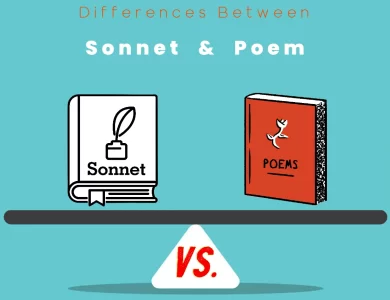
Poem vs Sonnet
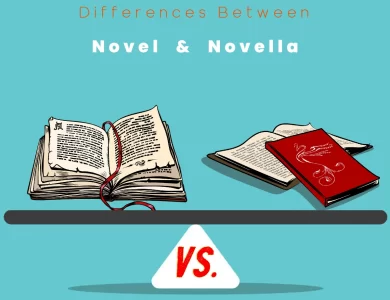
Novella vs Novel
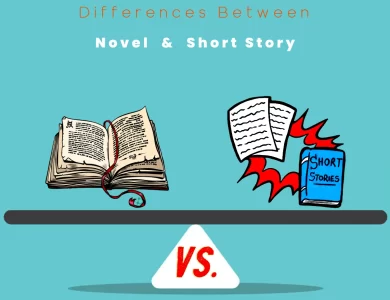
Naturalism vs Realism
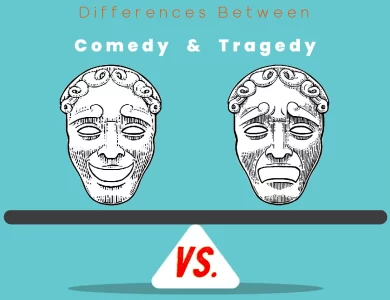
Tragedy vs Comedy
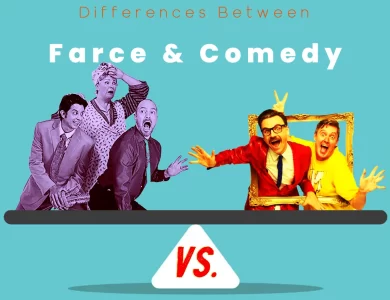
Comedy vs Farce
Leave a reply cancel reply.
Your email address will not be published. Required fields are marked *
Save my name, email, and website in this browser for the next time I comment.

COMMENTS
Unlike essays, short stories allow for more creative freedom in terms of narrative structure, with authors employing various techniques such as flashbacks, foreshadowing, or nonlinear storytelling to engage readers. Length. Another significant difference between essays and short stories is their length.
Exploring short stories through essay writing offers a unique opportunity to delve into the complexities of human experiences, societal issues, and the art of storytelling. By choosing engaging topics and critically analyzing the elements of short stories, writers and students can gain a deeper appreciation for the power of this literary form.
Genre: Essays belong to the non-fiction genre, while short stories can be either fiction or non-fiction. However, a narrative essay, a type of essay, can resemble a short story in that it tells a personal experience from the writer's life.
Differences Between Essay and Short Story. The main differences between an essay and a short story lie in their genre, purpose, and structure. Essays are non-fiction pieces that aim to inform, persuade, or argue on a specific topic, often featuring a clear structure with an introduction, body paragraphs, and a conclusion.
May 18, 2023 · Add a short story to your essay. Bring your point to life with a real-world story that gives an example of the logic from your essay. This will turn the essay from a 2D experience into a 3D one.
This handout will help you analyze a short story or novel—use it to form a thesis, or argument, for your essay. Summary Begin by summarizing the basic plot: “ Matilda by Roald Dahl is about a gifted little girl in small town America who learns to make things move with her mind and saves her teacher and school from the evil principal.”